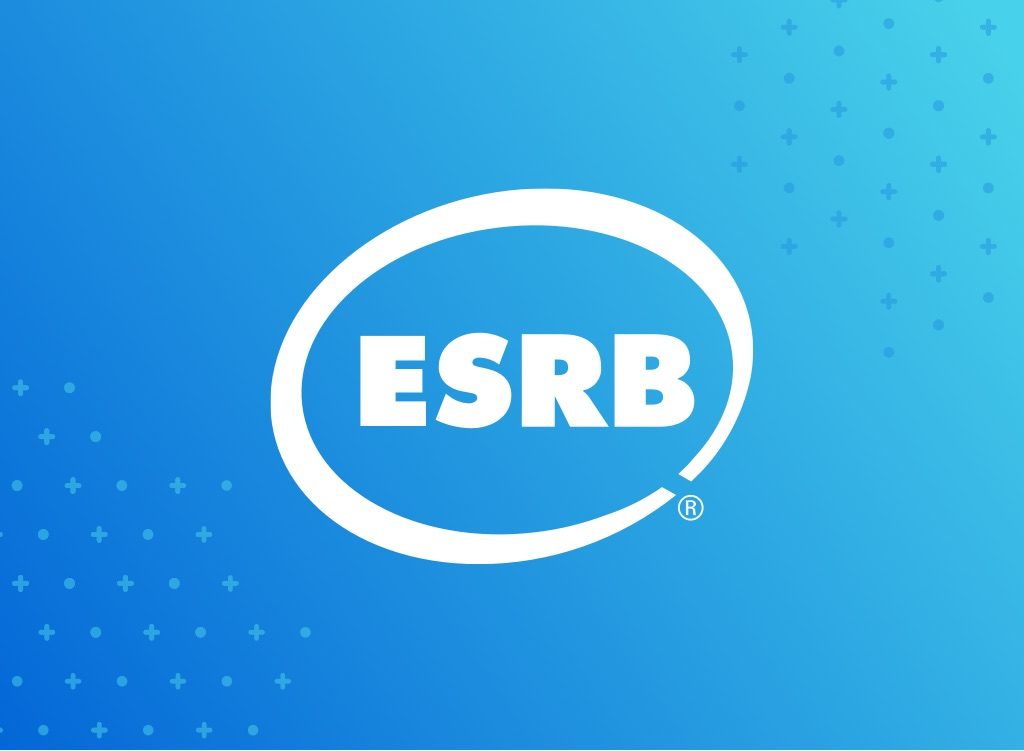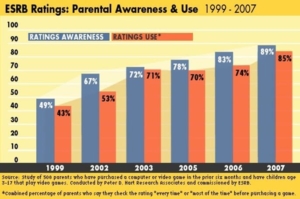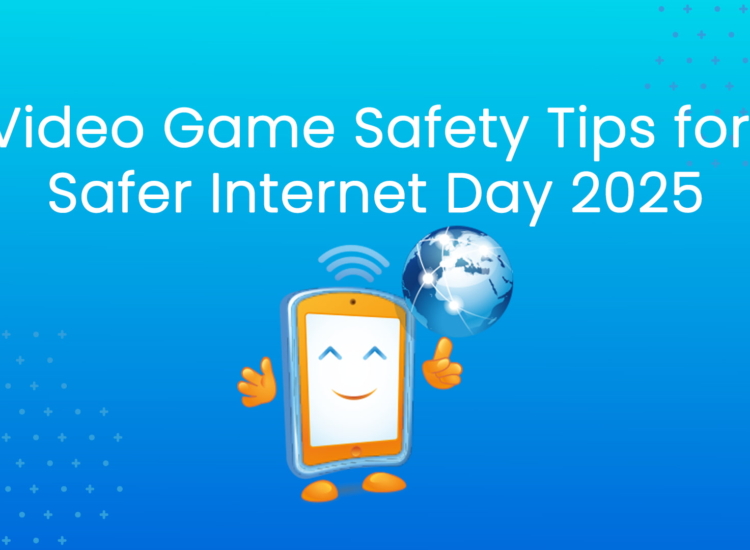Parents Increasingly Using ESRB Ratings To Restrict The Video Games Their Children Play

NEW YORK – National research shows that parents are increasingly becoming more restrictive when it comes to limiting the video games their children play according to a study commissioned by the Entertainment Software Rating Board (ESRB). The study found that 6 in 10 parents (60%) with children under 18 “never” allow their children to play games rated M for Mature, while 34% only do so “sometimes” – one of several findings that is consistent with those reported recently by the Federal Trade Commission (FTC)1. Moreover, parents of children under the age of 13 are twice as likely as those with children 13 and older to “never” allow them to play M-rated games. The ESRB study was conducted by Peter D. Hart Research Associates in early April, and surveyed over 500 parents who have purchased a computer or video game in the last six months and have children age 3 to 17 that play video games.
Nearly 90% of American parents with children who play video games are aware of the ESRB ratings, and 85% use them regularly when buying games for their families – both of which increased from the same study conducted last year (see historical chart below). In fact, 3 in 4 parents (73%) reported checking the ESRB rating “every time” before deciding whether to purchase or rent a game for their child, an increase of 10 percentage points over last year.
“It’s extremely encouraging that the vast majority of parents are involved and informed when it comes to choosing which games are appropriate for their families,” said ESRB president Patricia Vance. “The ratings continue to be a very important, if not the most important tool to help parents make an informed decision, and it’s clear that parents are using and relying on them in growing numbers.”
“Awareness and use of the ratings is clearly continuing to rise to considerably high levels, still showing steady growth from where they were just a few years ago,” said Jay Campbell of Peter D. Hart Research Associates. “What is quite telling is that the number of parents who say they ‘never’ allow their children to play M-rated games rose as those who ‘sometimes’ do declined. This suggests that parents are becoming more assertive in using the ratings to set and enforce restrictions with respect to the games they allow their children to play.”
Among the study’s other findings:
- 87% of parents find it “very important” to be able to monitor and regulate what their children watch, read and play
- 90% of parents surveyed said that the ratings are “very” (55%) to “somewhat” (35%) helpful in helping them buy and rent games they deem appropriate for their children
- 91% say the ESRB ratings are the “most important” (17%), a “very important” (52%), or a “somewhat important” (22%) consideration when selecting games
- Other than ESRB ratings, parents turn to packaging (31%), other parents (29%), or their children (21%) as the top three sources of information about games
- 83% said that they would consider parental control settings to be “very” (53%) to “somewhat” (30%) helpful in allowing them to control the games their kids play
The ESRB rating system includes six age-based rating categories: EC (Early Childhood) for ages 3+; E (Everyone) for ages 6+; E10+ (Everyone 10 and older); T (Teen) for ages 13+; M (Mature) for ages 17+; and AO (Adults Only) which indicates that the game should only be played by adults age 18 and older. The rating is found on the front of virtually every game sold at retail in the U.S. The rating system also includes over 30 content descriptors, found next to the rating on the back of game packages, which describe content in the game that may be of interest or concern to parents or may have triggered a rating category, including violence, sexual content, language, use or depiction of controlled substances, and gambling.
# # #
About Entertainment Software Rating Board (ESRB)
The ESRB is a non-profit, self-regulatory body established in 1994 by the Entertainment Software Association (ESA). ESRB independently assigns computer and video game content ratings, enforces advertising guidelines, and helps ensure responsible online privacy practices for the interactive entertainment software industry.
1FTC Report to Congress on Marketing of Violent Entertainment to Children, April 2007 (p. 27-28)
Contact:
Eliot Mizrachi, ESRB
917.522.3235
emizrachi@esrb.org



